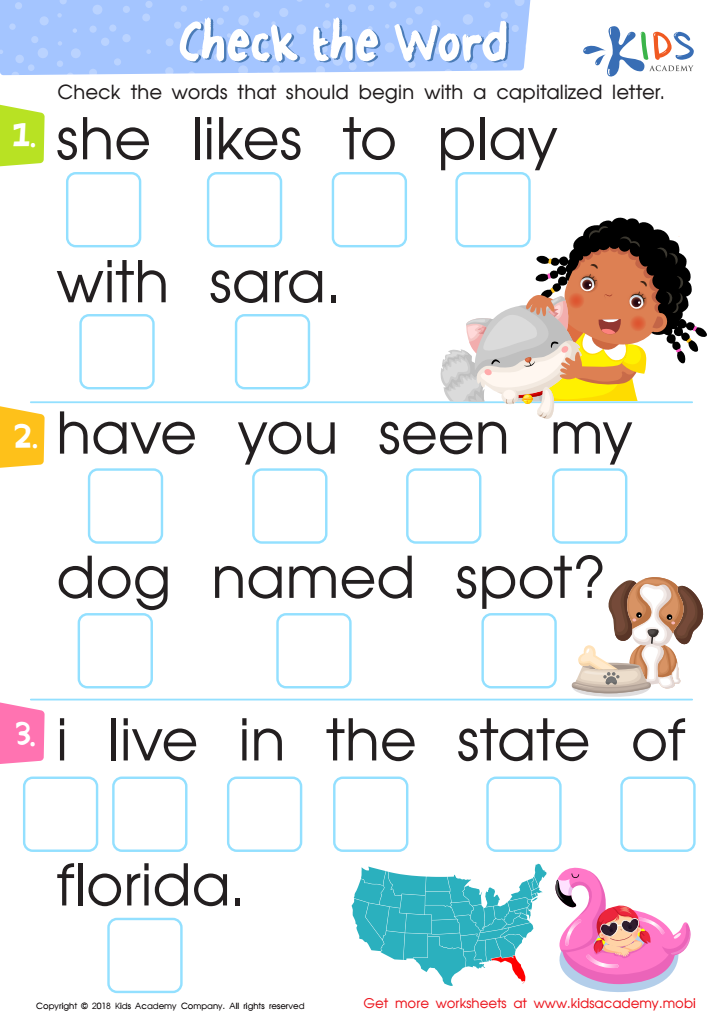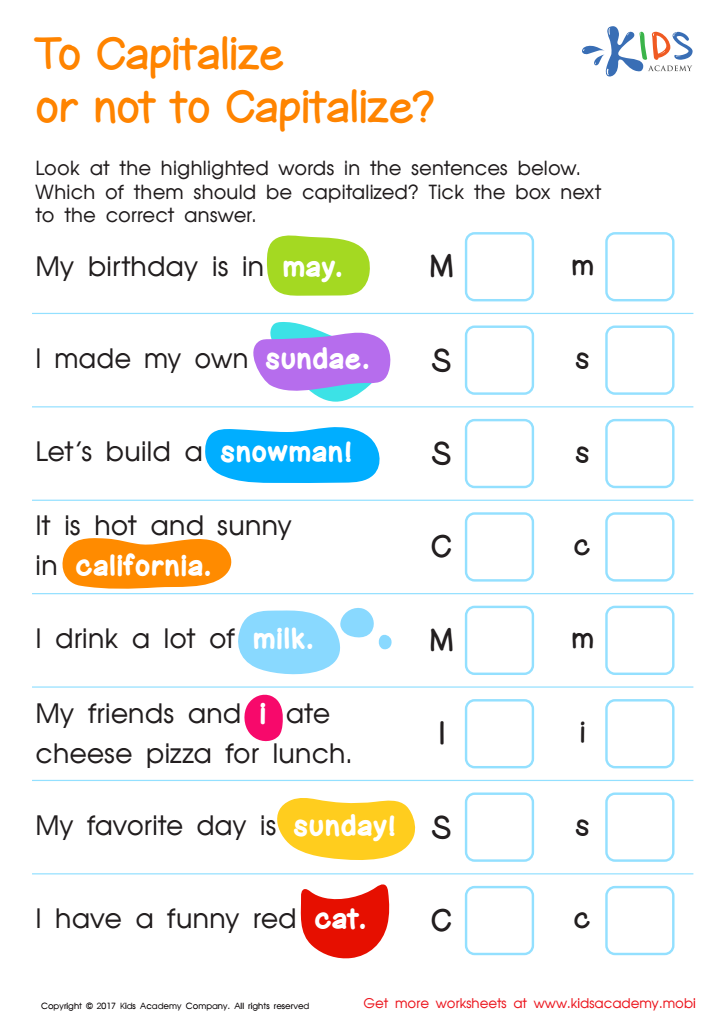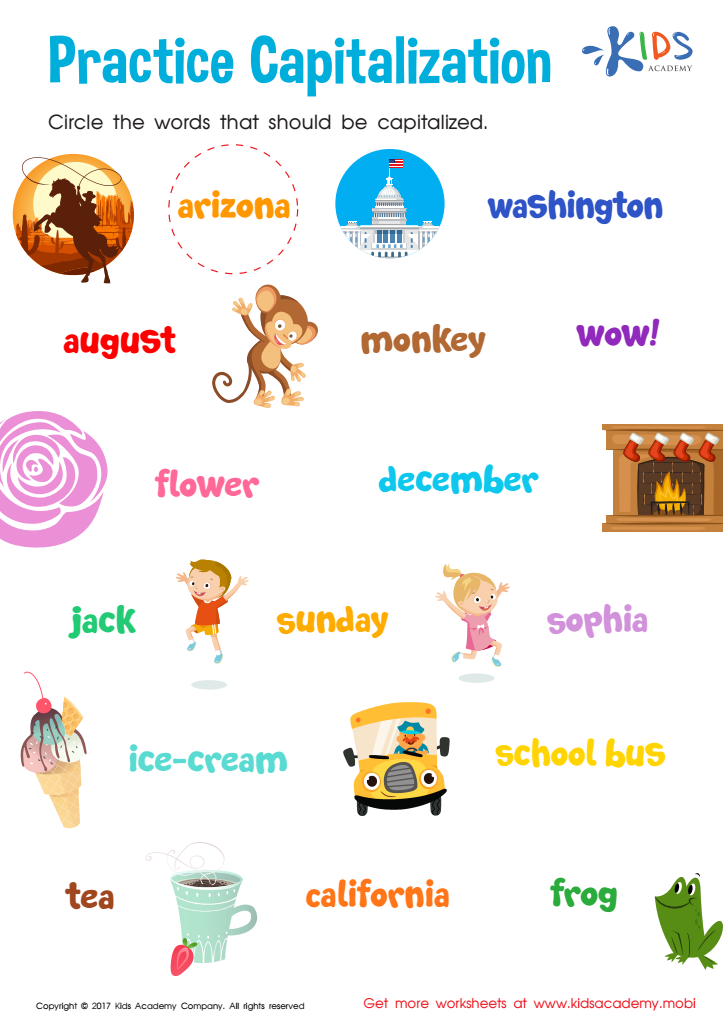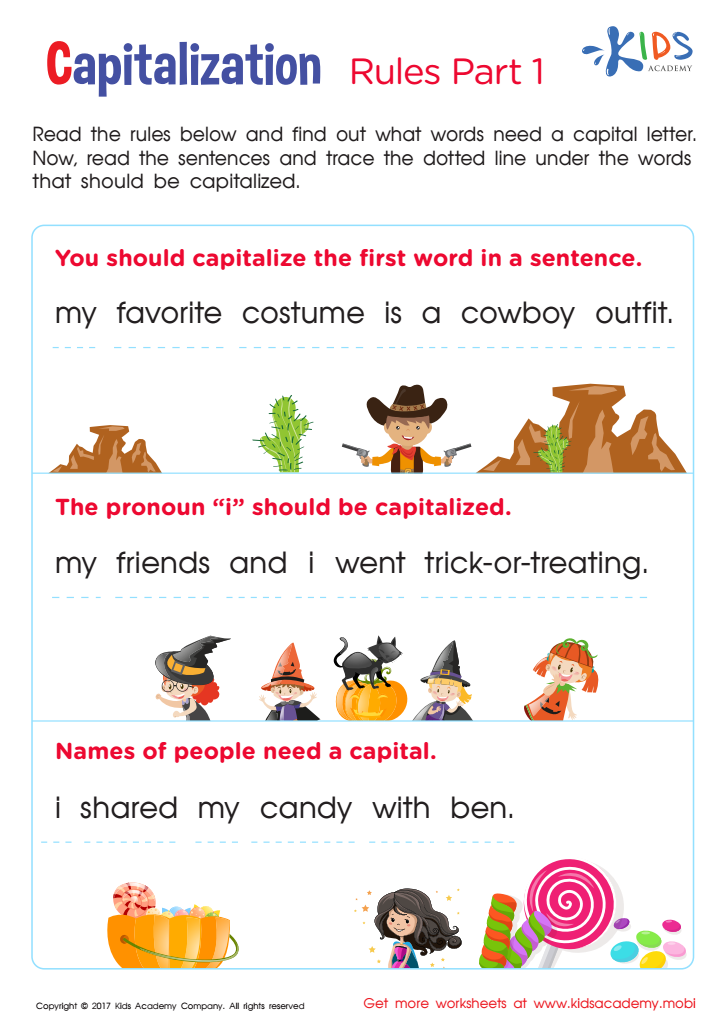Normal Capitalization Worksheets for Ages 3-8
4 filtered results
-
From - To
Elevate your child's writing skills with our Normal Capitalization Worksheets designed for children ages 3-8. These fun, engaging activities teach kids the fundamentals of proper capitalization, from recognizing capital letters to applying them in sentences. Each worksheet focuses on age-appropriate exercises, including capitalization of the first word in a sentence, names, days of the week, and more. Perfect for home or school use, our worksheets foster early literacy, boost confidence, and make learning enjoyable. Prepare your little ones for writing success with our expertly crafted resources. Explore our collection now and watch their skills flourish!


Check the Word Worksheet


Capitalization: To Capitalize or Not? Printable


Practice Capitalization Printable


Capitalization Rules: Part 1 Worksheet
Ensuring proper capitalization for children aged 3-8 is crucial as it lays the foundation for their literacy skills and contributes to their overall academic success. Early exposure to correct capitalization rules helps young learners to develop strong writing habits, making them more proficient and confident in communicating their ideas effectively.
Firstly, learning proper capitalization is essential for understanding the basic structure of the written language. This includes recognizing the importance of capitalizing the first word in a sentence, proper nouns, and the pronoun "I." Early mastery of these rules helps children read more fluently and comprehend text with ease.
Furthermore, consistent use of standard capitalization enhances readability and reduces misunderstandings. When children are taught to capitalize correctly, it mitigates confusion, making their writing clearer to readers. This skill not only benefits their academic writing but also sets a precedent for future professional communication.
Additionally, instilling these habits early encourages attention to detail and an appreciation for the rules of grammar, which are foundational skills for learning other language complexities.
Moreover, when parents and teachers emphasize the importance of correct capitalization, they model a positive attitude toward learning and academic diligence. This encouragement nurtures a child’s sense of pride in their work and inspires a commitment to high standards.
In summary, normal capitalization is integral for developing essential writing skills in early learners, fostering better comprehension, clear communication, and lifelong academic habits.
 Assign to My Students
Assign to My Students












